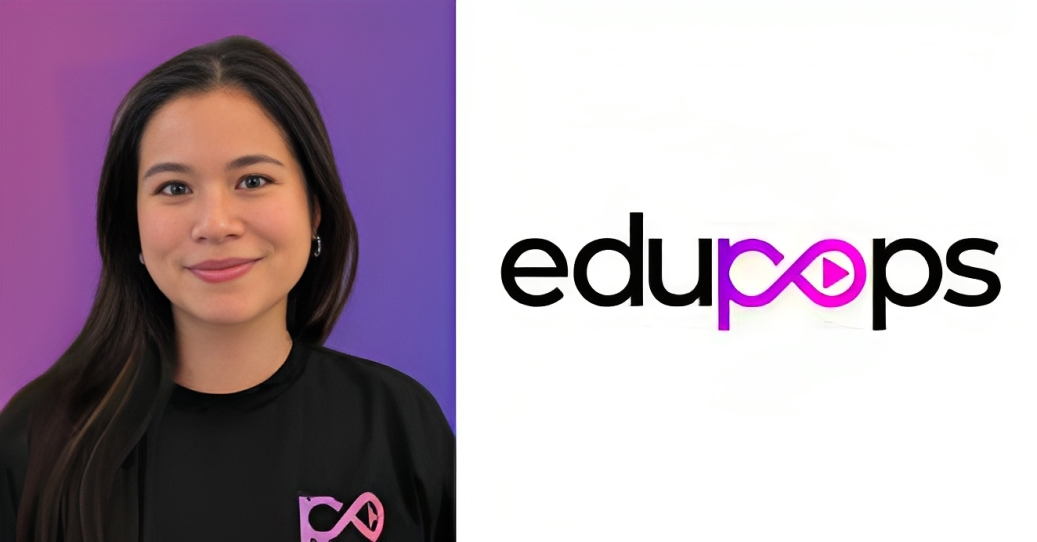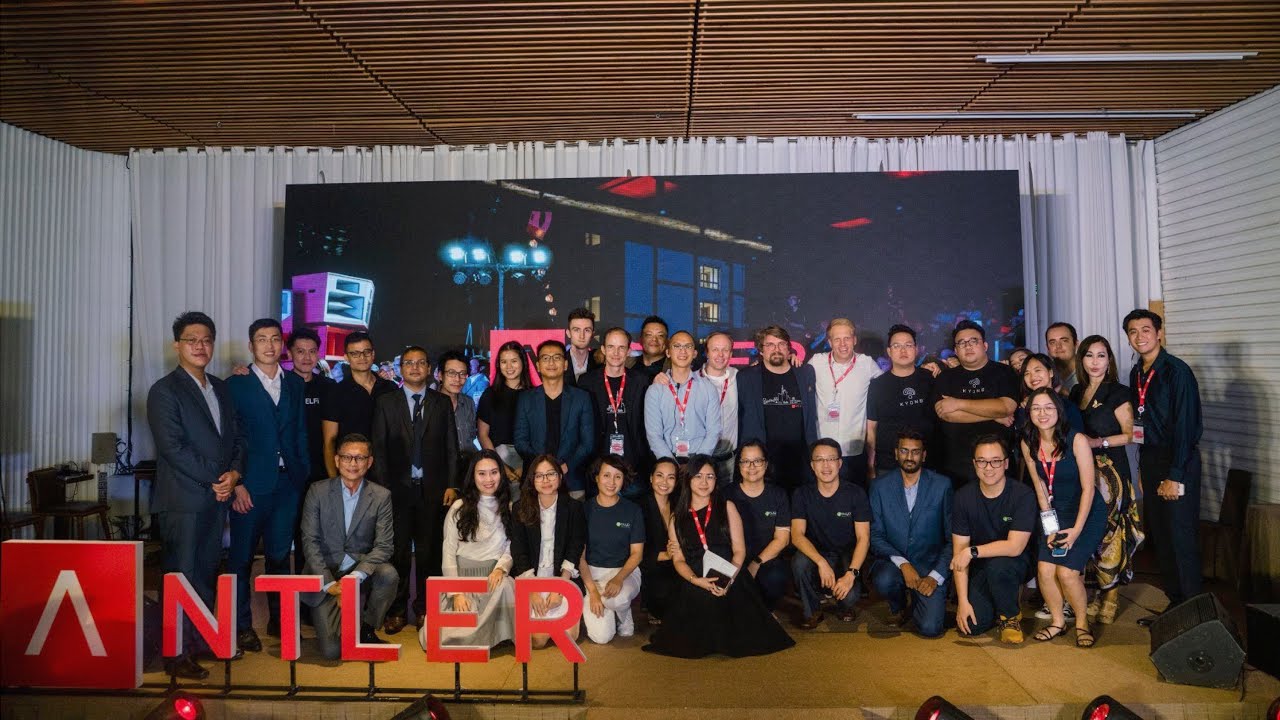Introducing Thuong and Edupops
Q: Can you give us a brief overview of Edupops and its mission?
A: I founded Edupops to merge social media and education. It’s a social training app where we make short videos for learning. So, you’re not just mindlessly scrolling through your phone; you’re making that time productive.
Why Antler?
Q: What motivated you to join the Antler accelerator program?
A: Honestly, joining Antler wasn’t a super-calculated move for me. I had many ideas floating around in my head, and when I stumbled upon a listing for Antler, it piqued my interest. At that time, I was also kind of at a crossroads with my job, so it felt like another door had just opened. So, I signed up for the program.
I went into it with a few ideas and areas I wanted to explore but didn’t have a co-founder or any connections in that network. I came in with an open mind because I think it’s more important to have a solid founding team than just to have an idea.
The Antler Application Overview
Q: Can you describe the application process for Antler?
A: The application process was pretty straightforward. It started with a form where you answer three or four questions. These questions are public, so you can find them online. They ask you whether you have an idea, your background, and what motivates you, among other things.
After submitting the form, it goes through a review. Then you get screened by an associate or a junior manager. If you clear that, you have another interview, this time with a partner in the program. It’s a step-by-step process, but it’s quite well-organized.
Q: Do you have any advice for people undergoing the Antler application process?
A: My experience was pretty smooth, partly because it was only the second cohort in Vietnam, so it was relatively new. You might have higher chances of getting in if you’re in a less competitive location. But the main tip is just to be yourself. A lot of people see this as a one-sided relationship where they need to impress the accelerator. But it’s a two-way street. They need to see value in you, and you need to see value in them. If it’s not a good match, then it’s simply not meant to be.
After Getting In
Q: What was the experience like right after you got accepted into Antler?
A: Once you get accepted, you meet everyone online about a week or two before the program starts. We had some brainstorming sessions and basic introductions. The first week is all about networking and breaking the ice. We did activities like the “spaghetti challenge,” where we built team towers. There was even a three-hour speed dating session to meet everyone.
From the second week onwards, it gets more focused. You start attending master classes two or three times a week. These classes teach you the ropes—what a startup is, how to approach it, and how to validate your ideas. And every week, there are boot camps. The first boot camp team is randomly assigned, but then you start working on ideas and pitching them. You get feedback and continue to iterate. You can also switch up your teams as you go along. It’s a repetitive but essential process for development.
Q: How and when did you find your co-founder, and what led you to work together on Edupops?
A: I found my co-founder towards the end of the third week or the beginning of the fourth week of the program. I was one of the late bloomers because I was cautious about forming a team. We connected through an idea sprint exercise and instantly bonded over our ideas.
The idea for Edupops was my co-founders’. We both shared similar values and had the same vision for what we wanted to accomplish professionally and personally. That alignment was clear from the first exercise where we were part of a larger team. It showed us how well we worked together.
For anyone starting a startup, it’s vital to establish a professional relationship with your co-founder. Ten weeks in a program like Antler isn’t enough to fully get to know each other, but it’s a start. The most important thing is to put the business first and be aligned with your goals and expectations. We haven’t had any significant issues, which is a good sign.
Q: Did you receive any funding through the program?
A: The funding is around $100,000 for about 12% equity in your startup. But there’s a catch. You don’t get the full amount because a portion goes towards the program fee. So you end up with around $65,000 to $70,000. That’s what you have to work with if you get the funding.
Q: What benefits did you experience besides the funding?
A: The network, that’s the golden ticket. When you say you’re part of the Antler cohort on LinkedIn, people start to notice you. VCs lined up to talk to us after we announced that we got funded. It’s like you suddenly exist on the radar, and that opens so many doors.
Being a startup founder is a hot thing right now, but having VC backing adds this extra layer of credibility. And that’s all thanks to being part of Antler. It’s not just the people you meet directly through the program but the ripple effect it has. You get introduced to advisors and get to brainstorm with other thinkers; it’s like a chain reaction that helps you go beyond just your own idea.
Current Status of the Company
Q: How’s the company doing one year after the accelerator?
A: Here’s the real talk: we’re in the middle of a pivot. Built the product, and tested it, but the market just isn’t reacting the way we thought it would. We’re still pre-revenue and hunting for that elusive product-market fit.
These accelerator programs put you in this super high-speed lane. You’ve got 10 weeks to raise money and then maybe another 4-5 months to build a product, validate it, and pitch it to investors. It’s fast-paced, and while that’s got its upsides, it’s got its downsides too. It doesn’t leave you much room to think things through or be more deliberate about what you’re building and spending your funds.
There was so much hype around our product. Everyone loved the idea. But it turns out people aren’t looking to learn through short videos. They want the dopamine rush of fun social media content. We’re learning, and we’re adapting, but, we’re very much in a pivot phase right now.
Q: What growth channels did you experiment with?
A: We threw a lot of darts at the board to see what would stick. Product communities were definitely on the radar, and we collaborated with various channels. To be honest, the specifics are a bit fuzzy—it’s been a while.
But here’s something interesting: LinkedIn was a big win for us. Probably had something to do with the Antler name and our existing network. We went pretty viral there, faster than we expected. We even ended up in some French newsletter by an influencer we’d never even heard of!

